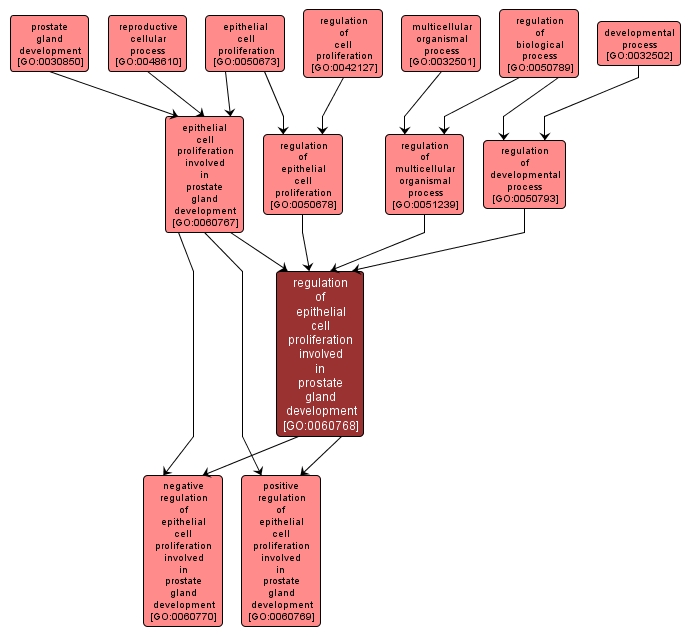GO TERM SUMMARY
|
| Name: |
regulation of epithelial cell proliferation involved in prostate gland development |
| Acc: |
GO:0060768 |
| Aspect: |
Biological Process |
| Desc: |
Any process that modulates the rate, frequency or extent of epithelial cell proliferation that contributes to the progression of the prostate gland over time. |
|

|
INTERACTIVE GO GRAPH
|














